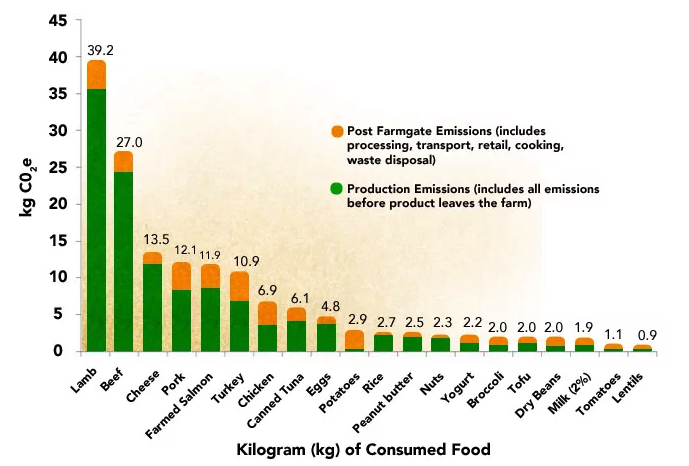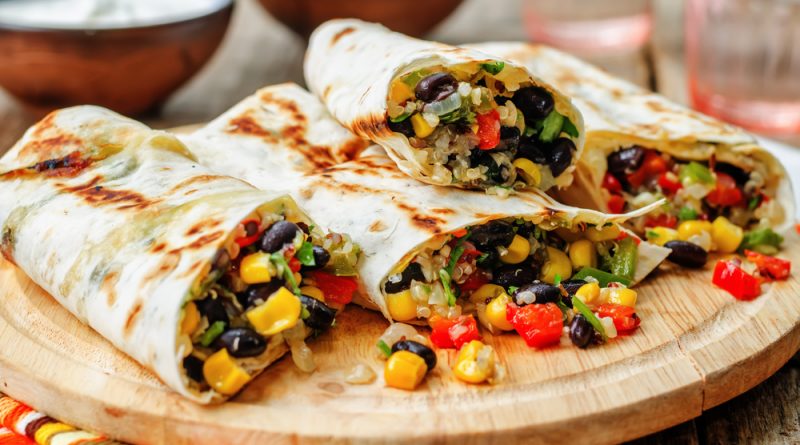Eating As If Climate Change Is Real
Years ago when I was teaching first and second grade, we had a charming little book in our classroom library that featured photographs of families from different cultures around the world, eating their traditional foods. I loved this book because it showed cultural differences appreciatively, while highlighting a key commonality of people around the world – we all need and eat food.1
Food is personal
We each have become accustomed to eating particular foods and diets. Some of it is based on our cultural heritages, some on where we live, some on family traditions, some on our individual tastes and preferences, and some on what we can afford. Some of us would like to eat less; some of us would like to have healthier eating habits. Many of us have discovered that it is not easy to change our eating habits, even when we want to. Many of us are especially resistant to anyone telling us what we “should” or “shouldn’t” eat.
At the same time, many of us would like to be doing more to help stop climate change. Generally we’d prefer strategies that aren’t too difficult for us. But integrity demands that we at least consider the changes that will make the most difference. The “Drawdown”2 study of which solutions have the greatest potential to reduce greenhouse gasses in the atmosphere found that large numbers of people shifting to a more plant-rich diet is number 4 out of the 100 best solutions! (We will need to implement most of the Drawdown strategies, not just choose a few.)
“Making the transition to a plant-based diet may well be the most effective way an individual can stop climate change.”
Zen Master Thich Nhat Hanh – Footnote #3.
This doesn’t mean everyone needs to become a vegan or a vegetarian. It doesn’t mean that to be committed to climate justice you must never eat meat again.4 It does mean that reducing our consumption of meat and dairy is good for the planet. It does mean that eating habits in the wealthier Western countries will need to change quite a bit. It does mean that for most of us, taking some step toward a more plant-rich diet, and sharing with other people that you are doing it, can be a significant piece of climate activism.
How Meat Production Harms the Climate
Meat production causes greenhouse gas emissions in two major ways. The first is that ruminant animals like beef cattle produce methane, a greenhouse gas about 30 times more harmful than carbon dioxide, primarily through belching and farting. While it may be hard to believe, if cattle were their own nation, they would be the world’s third-largest emitter of greenhouse gases (behind China and the United States)! The 60 billion land animals currently being raised for meat cause about one-fifth of all global greenhouse gas emissions, second only to fossil fuels.5
The second is deforestation. The demand for meat around the world is growing, resulting in forests being cut down for grazing and for growing feed crops. This leads to emissions from clearing and burning forests and to a loss of the carbon sequestration provided by all those trees. (Raising meat currently uses almost 50% of all agricultural land in the world.)
In the U.S. and Canada, at least, many people can eat less protein than they do now and still be very healthy. Whether we change the amount of protein we eat or not, getting more of it from plants would be a beneficial step for most of us. A plant-rich diet is less expensive to the individual, and is healthier, reducing healthcare costs.6
“Eat food. Not too much. Mostly plants.”
Michael Pollan, food author
The Drawdown solution is based on providing everyone in the world with adequate calories and protein, but eliminating excess consumption. This will provide better health in both developed and less-developed nations, save money, and provide huge benefits in reduced greenhouse gas emissions.
Here’s a chart from the Environmental Working Group7 which shows the “full lifecycle greenhouse gas emissions from common proteins and vegetables.”

Many questions you may have about this chart are answered in the article linked in footnote #7. I was personally unhappy to learn that cheese has the third worst carbon footprint of the common sources of protein. I had significantly reduced my eating of meat; now I’m struggling with cutting back on cheese. Cheese is such a culprit because it takes lots of milk to make it. Soft cheeses, such as cottage cheese, cause fewer greenhouse gas emissions than hard cheeses because it takes less milk to make them.
Recommendations
I recommend several approaches, if you want to help reduce climate change in this way. First, ask yourself, “Are there dishes I already eat that don’t have meat or dairy, but do have some protein?” If so, eat them more often. Secondly, find some tasty new plant-based dishes and add them to your diet regularly. My current favorites are a quinoa and black bean bowl and an Indian dal with lentils and interesting spices.
Third, you might try “meatless Mondays”. Fourth, you might try some of the new brands of “vegan meats”. I was pleasantly surprised by the “Beyond Meat” burger I tried last week. Fifth, whatever you do, however slowly you make the shift, take some step every month or two to make your diet more plant-rich. You will be one of the growing numbers of people who are making this shift – healthy for the planet, healthy for you, and likely introducing you to some tasty new dishes.
____________________
- Of course we know that many people in the world do not have enough to eat. Roughly 795 million people in the world do not have enough food to lead a healthy active life. That’s about one in nine people on earth. The vast majority of the world’s hungry people live in developing countries. By vastly reducing food waste, shifting to a more plant-rich diet, and addressing inequities in food distribution, humanity has the capacity to adequately feed the entire world population. Racism is a major obstacle.
- https://www.drawdown.org/solutions/food/plant-rich-diet
- http://altosustainability.com/blog/2018/05/09/plant-rich-diet-drawdown-strategy-4/
- If you are very attached to eating beef, for instance, or are particularly resistant to giving it up, it may work for you to view beef as a delicacy that you eat occasionally, rather than as a staple of your diet.
- https://bioneers.org/eating-plant-based-diets-can-play-huge-role-limiting-effects-climate-change-ze0z1709/ Grass-fed cattle raised with well-designed managed grazing techniques can have lower net greenhouse gas emissions and improve soils. This is a useful strategy, but cannot replace the need for a widespread shift from animal to plant protein in our diets.
- Much more than most climate change strategies, this one lies in the hands of individuals. At the same time, policy changes that eliminate price-distorting government subsidies for livestock production (billions of dollars) and require the industry to pay for the environmental costs of its production can have very significant impacts.
- https://www.ewg.org/meateatersguide/a-meat-eaters-guide-to-climate-change-health-what-you-eat-matters/climate-and-environmental-impacts/
